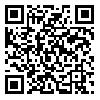BibTeX | RIS | EndNote | Medlars | ProCite | Reference Manager | RefWorks
Send citation to:
URL: http://rjms.iums.ac.ir/article-1-2240-en.html
2- Isfahan Azad University
Background : Our purpose in this research was to evaluate the correlation between skill in chess (international chess rating scale) and severity of depression and anxiety and ten cognitive errors in members of Iranian Chess Federation that have international chess rating scale as well as to study the prevalence of depression and anxiety in the sample.
Methods: 96 persons that had an international chess rating scale were sampled with convenient method and took part in this cross sectional study. All samples completed the second version of Beck Depression Inventory, Beck Anxiety Inventory and Cognitive Error Test. Data were analyzed with SPSS software.
Results: There was a significant reverse correlation between chess rating scale and four cognitive errors including over generalization, magnification, jumping to conclusion and must statement. The depression severity decreased by increasing the numbers of hours of game playing in the day. Also there was a reverse significant correlation between chess skill and depression severity, but chess skill had no significant correlation with severity of anxiety. The prevalence of mild moderate depression was 16.7%. There was no case with severe depression. The prevalence of mild and moderate anxiety was 27.1% and severe anxiety was 5.2%.
Conclusion: We conclude that this significant reverse correlation between chess rating scales and depression severity is mediated by decrease of cognitive errors and the number of the hours of game playing in the day, which is in accordance with Beck's Cognitive Theory and Behavioral Activation Theory.





